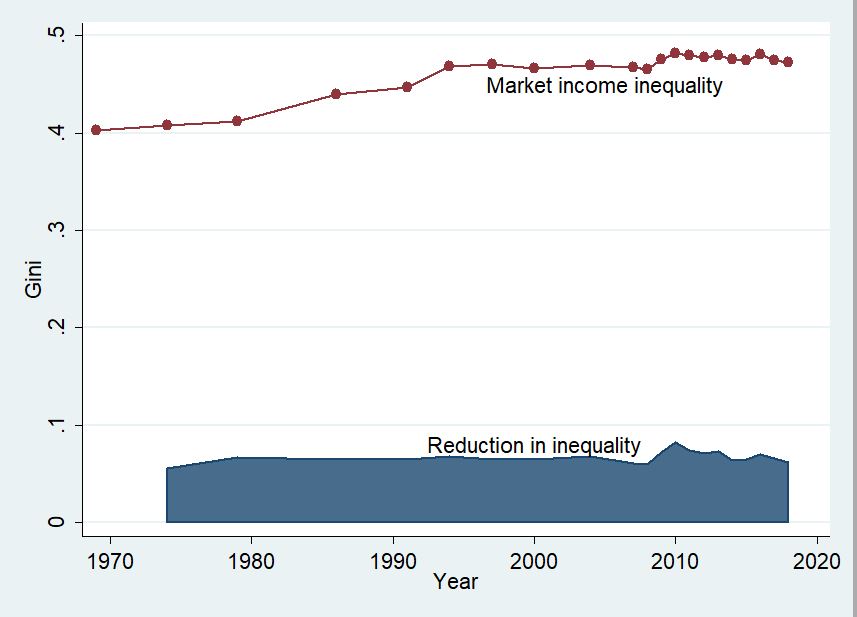
Long thread
Half a century of US income redistribution.
@lisdata
The best way to study the extent to which social transfer and direct taxes reduce inequality (by targeting those less well-off and taxing the rich) is to compare inequality before transfers and taxes...
Half a century of US income redistribution.
@lisdata
The best way to study the extent to which social transfer and direct taxes reduce inequality (by targeting those less well-off and taxing the rich) is to compare inequality before transfers and taxes...
(called market income inequality) with inequality after transfers and taxes. The reduction, expressed in Gini points, has become more important in the US going from around 10 Gini points (point 0.1 on the vertical axis) to about 14 points. 

It has been less however than German redistribution that shaves off up to 25 Gini points.
There are two problems with this measurement. First, transfers include government pensions (the main transfer item) that can be seen as deferred wages.
There are two problems with this measurement. First, transfers include government pensions (the main transfer item) that can be seen as deferred wages.
Moreover, occupational pensions that are common in the US are left out of redistribution, while state pensions (like in Germany) are included. To correct that, we include both types of pension in market income, and look at the remaining redistribution. 

Now redistribution is less in both US and Germany, and the gap between the two is smaller. However, we note that US redistribution has been constant at about 6 Gini points except during the Great Recession when it increased (thanks to unemployment benefits).
Second, constant redistribution may, in effect, be less of a redistribution if the underlying market income inequality has gone up. This has happened in the US. In the 1970s-early 1980s, market inequality (after including pensions in market incomes) was in the low 40s (Gini);
now it is ~48. In the past, transfers and taxes took off 6 Gini points from 40 market Gini points; now, they still take off 6 Gini points but from a *higher* market inequality. Redistribution has become *relatively* weaker & inequality of after-tax income has gone up. 

@threadreaderapp unroll
• • •
Missing some Tweet in this thread? You can try to
force a refresh


